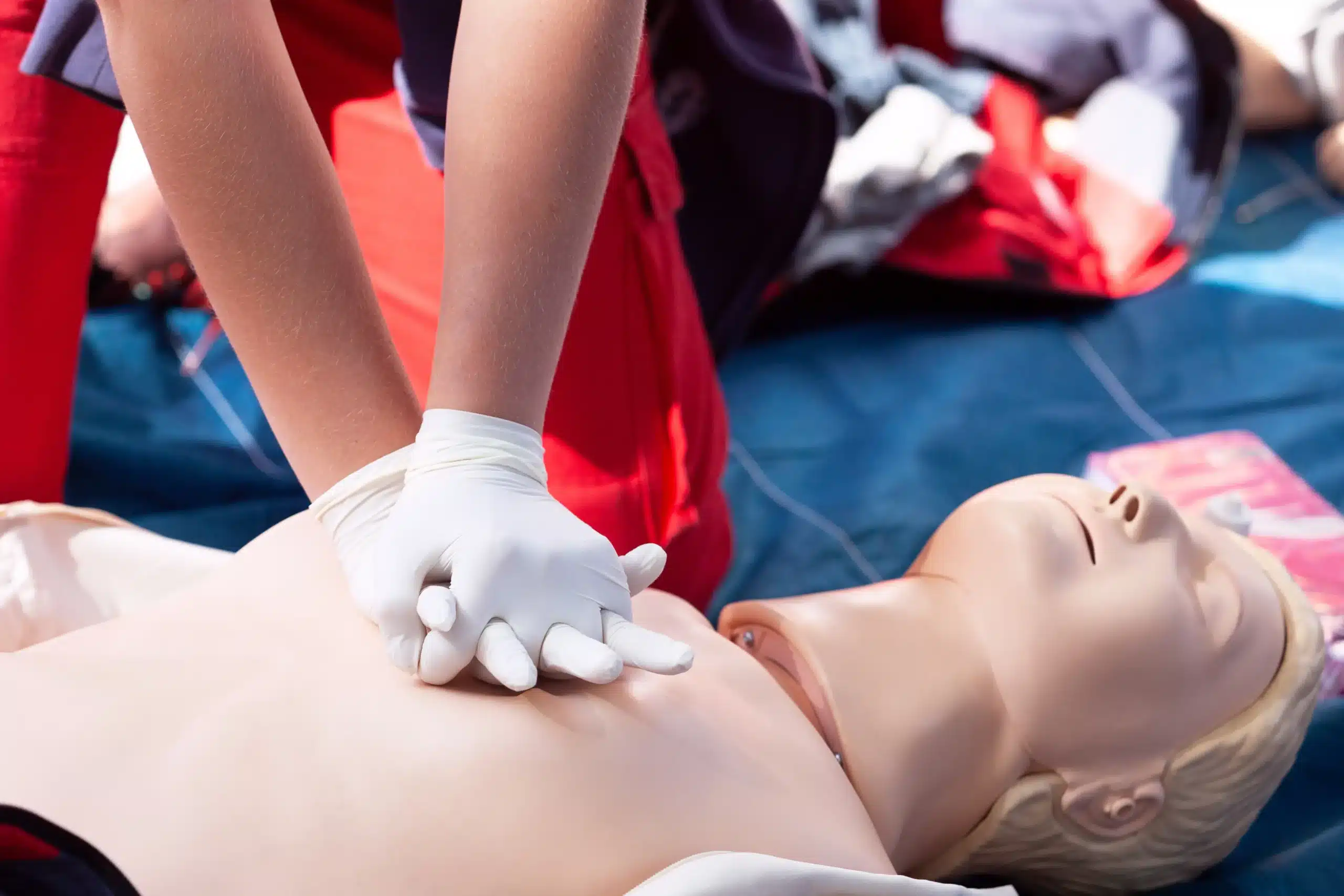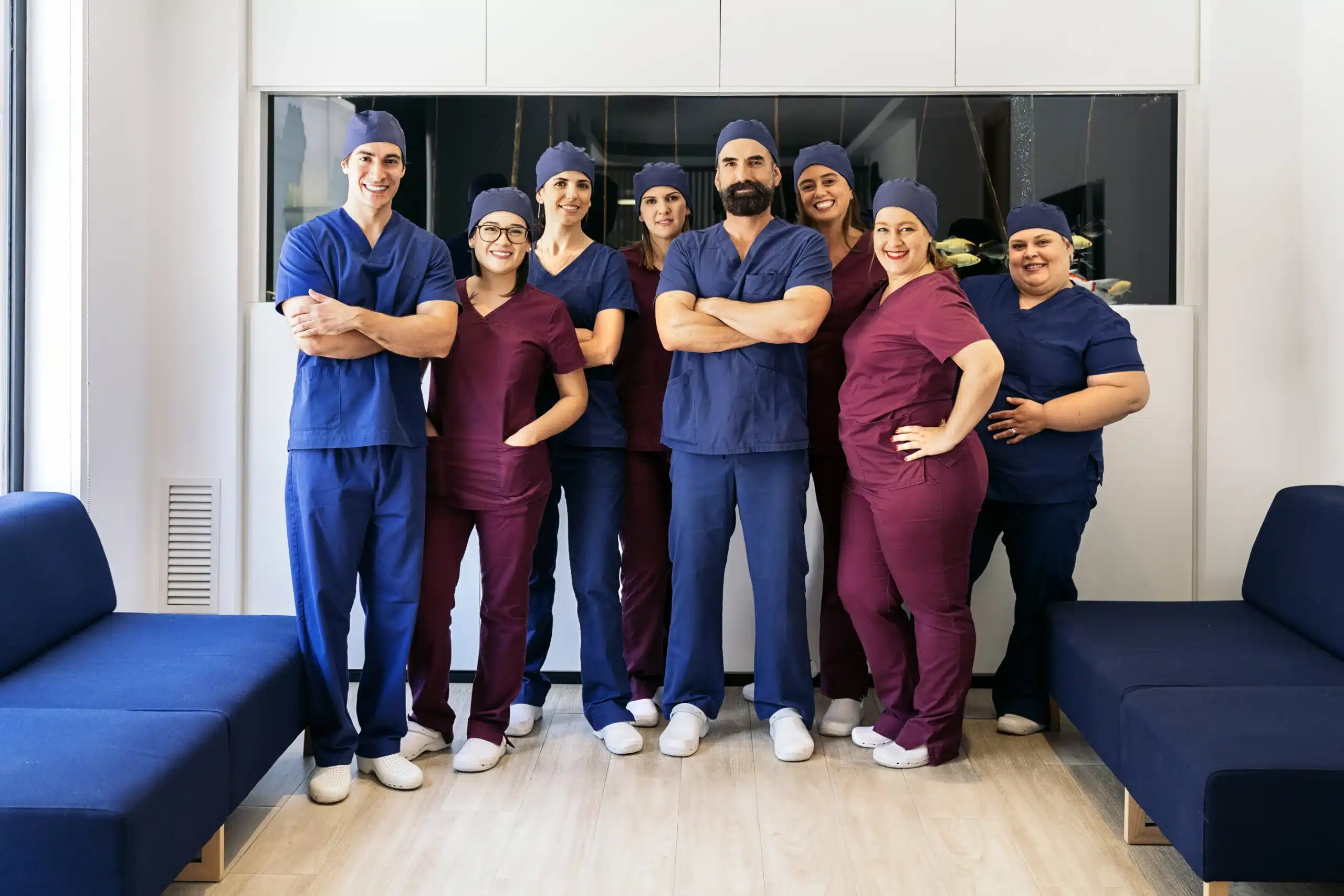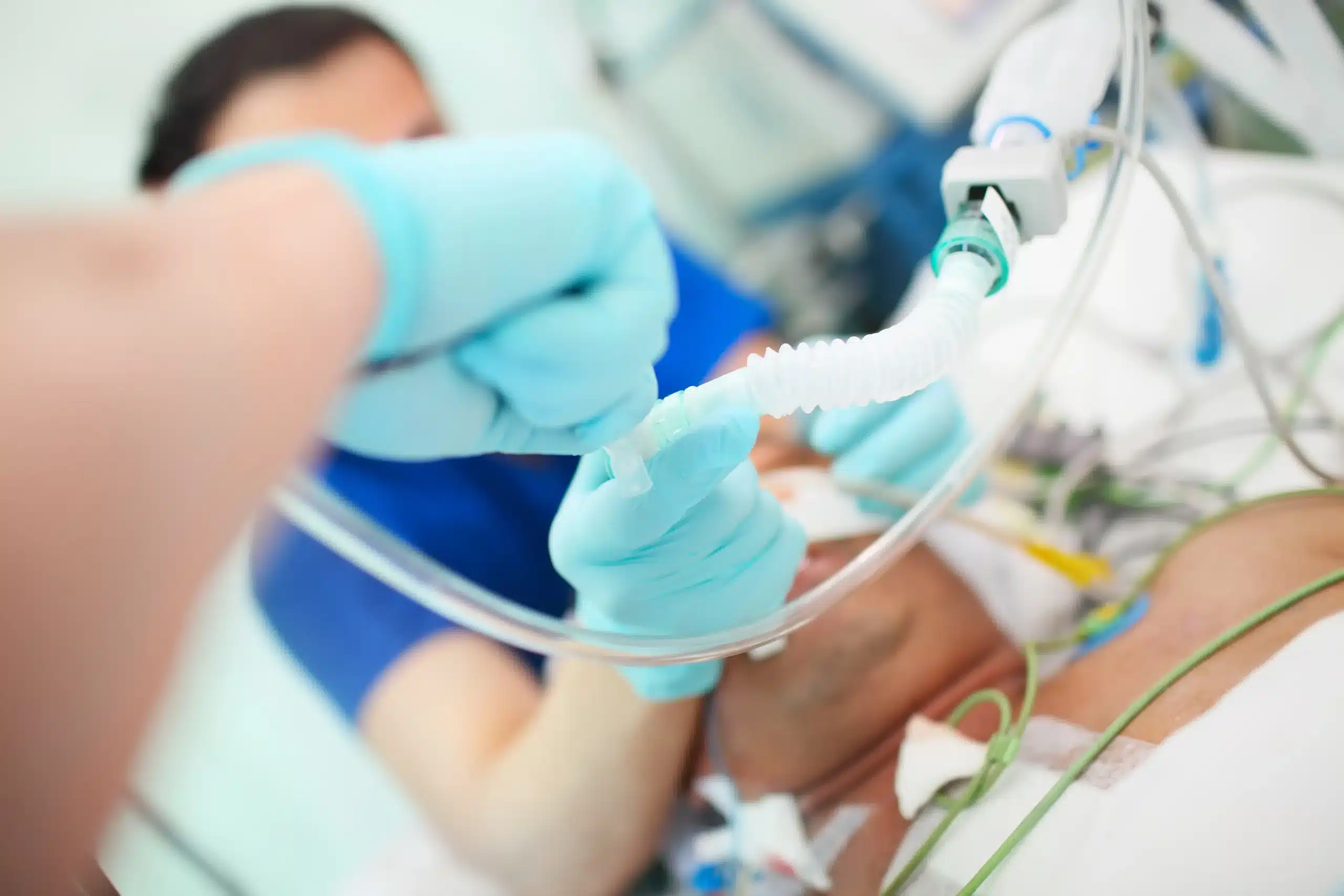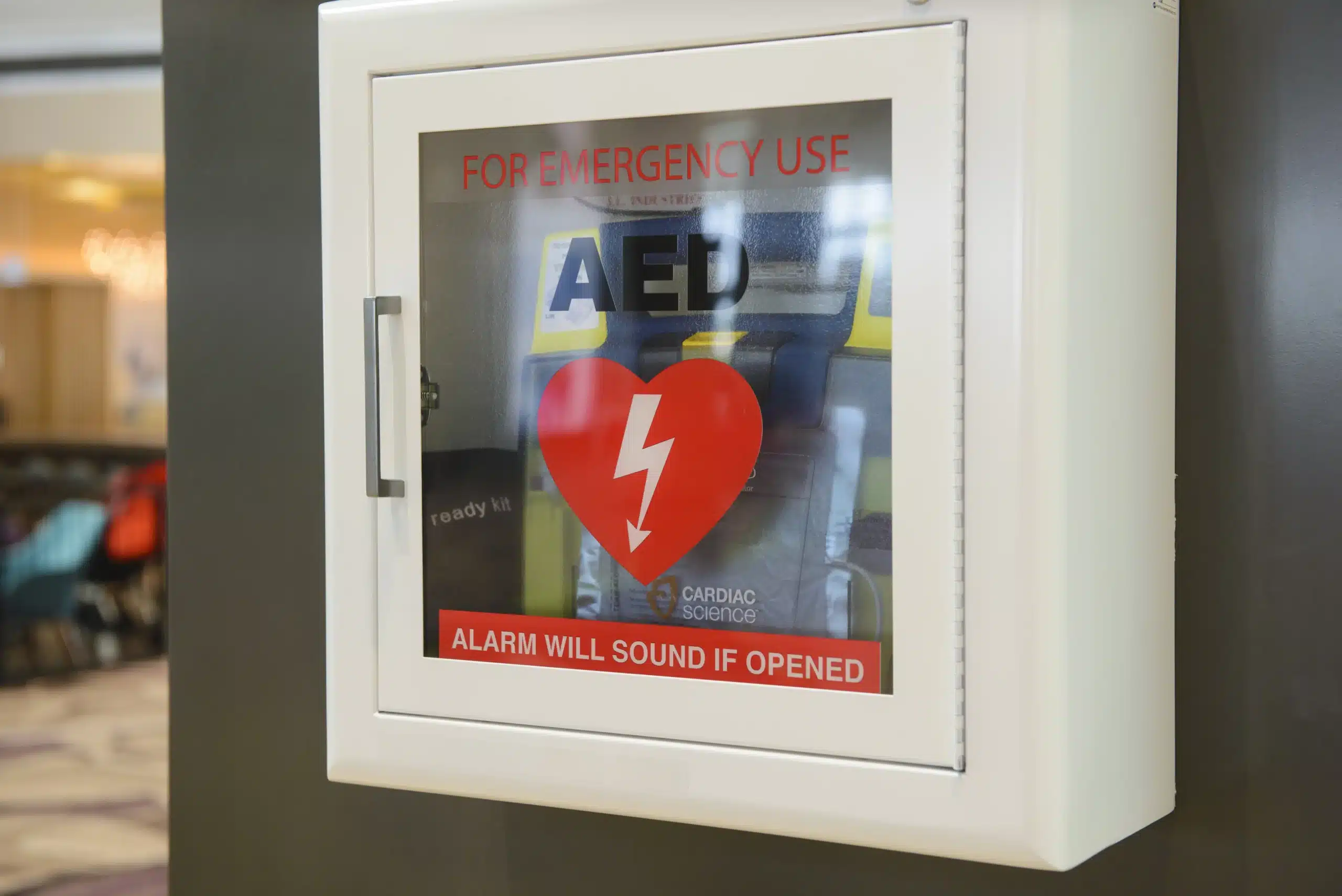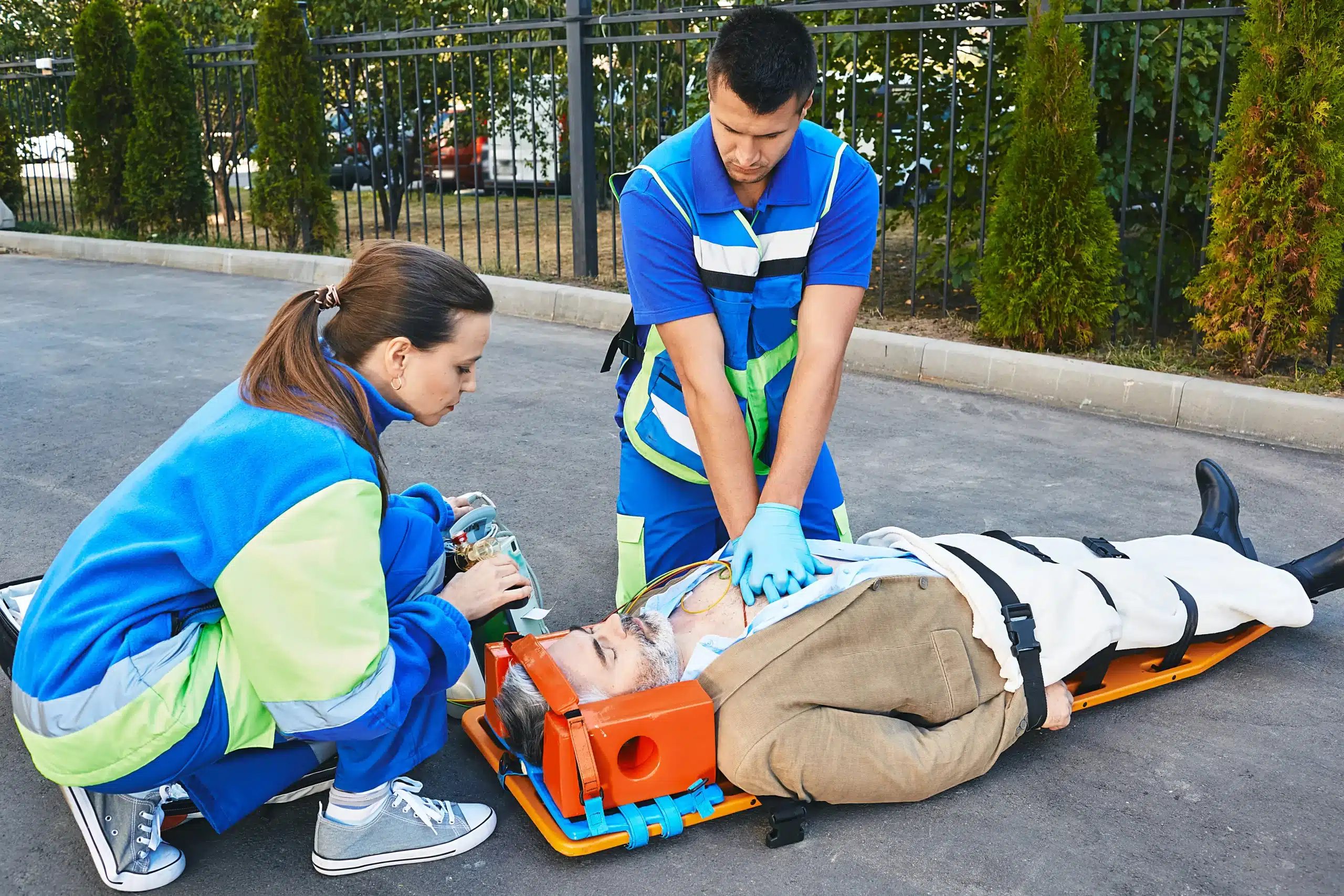Emergencies can happen anytime, anywhere. Are you prepared to respond? Basic Life Support (BLS) certification empowers you with the skills and knowledge to handle life-threatening situations, potentially making a life-saving difference. This guide explores the importance of BLS certification in San Mateo, providing valuable information about course options, costs, and the certification process. We’ll also delve into the essential skills covered in BLS training, including CPR, AED use, and airway management. Whether you’re a healthcare professional, a childcare provider, or simply want to be prepared for the unexpected, this guide will help you understand the value of BLS certification in San Mateo.
Key Takeaways
- BLS certification empowers you to handle emergencies. Whether you’re a healthcare professional or want to be prepared for any situation, BLS training provides essential life-saving skills applicable to various emergencies.
- Finding the right BLS course is easy. Explore different course formats (in-person, online, or blended) and choose a reputable provider that offers flexible scheduling and quality instruction. Compare prices and look for a low-price guarantee.
- Stay current with your BLS skills. Maintain your certification by taking renewal courses and pursuing continuing education opportunities to ensure you’re always prepared and confident in your abilities.
What is BLS Certification?
Basic Life Support (BLS) certification gives healthcare professionals the essential skills to handle life-threatening emergencies. It’s a critical credential, focusing on immediate intervention and stabilization. Think of it as the foundation for saving lives. BLS certification covers core skills like CPR, using an AED, and airway management. These skills empower healthcare providers to confidently respond to cardiac arrest, respiratory distress, and other emergencies. High-quality CPR can dramatically improve a patient’s chances of survival. BLS skills are also valuable outside the hospital, giving you the confidence to act quickly in any situation. BLS certification is typically valid for two years and requires recertification to stay current with the latest guidelines. This ensures providers maintain top-notch skills and knowledge for effective emergency care. If you’re in healthcare or plan to be, BLS certification is essential for your career and your ability to make a real difference.
Find BLS Certification in San Mateo
Finding the right BLS certification course in San Mateo means exploring the various options available. Several organizations and training centers offer high-quality programs. Here’s a closer look at some of your choices:
Safety Training Seminars
Safety Training Seminars offers a variety of BLS course options to fit your needs and learning style. As an American Heart Association (AHA) Training Center, they provide AHA-certified BLS courses, along with other certifications like CPR, ACLS, PALS, and First Aid. Conveniently located in San Mateo, they offer daily classes to accommodate various schedules. Their commitment to excellent customer service and a low price guarantee makes them a popular choice.
American Heart Association
The American Heart Association provides resources and information to help you find certified BLS training centers. You can easily locate BLS courses in San Mateo County directly through their website. This ensures you’re learning from an approved provider and receiving a valid certification.
Red Cross
The American Red Cross offers BLS certification and renewal courses in nearby Burlingame, CA. These courses are designed for healthcare providers and first responders. They offer various learning formats, including in-person and blended online/in-person options, providing flexibility for busy professionals.
Bay Area CPR
Bay Area CPR offers American Heart Association BLS, ACLS, PALS, and CPR classes in and around Millbrae, conveniently close to San Mateo. BLS class prices vary based on the provider, course format (in-person or blended learning), and any included extras. Checking their website for current course schedules and pricing is recommended.
Learn Essential BLS Skills
BLS certification equips you with fundamental life-saving skills applicable in various emergencies. From providing high-quality CPR to using an AED, you’ll gain the confidence to respond effectively. Let’s explore these essential skills:
High-Quality CPR Techniques
High-quality CPR is the cornerstone of BLS. You’ll learn the proper techniques for chest compressions, ensuring adequate depth and rate to maintain blood circulation. Effective CPR significantly increases the chances of survival during cardiac arrest. This includes understanding how to assess the scene, check for responsiveness, and activate the emergency response system. For more in-depth information on high-quality CPR, check out resources like those available from Daly City CPR classes.
AED Operation
Automated External Defibrillators (AEDs) are life-saving devices that can restore a normal heart rhythm during cardiac arrest. BLS training covers the safe and effective use of AEDs, guiding you through the steps, from turning on the device to applying the pads and delivering the shock. Understanding how and when to use an AED is crucial for maximizing the chances of a positive outcome.
Choking Relief
Choking can quickly become life-threatening. BLS training teaches you how to recognize the signs of choking and perform appropriate techniques to clear the airway, including back blows and abdominal thrusts for both conscious and unconscious victims. Quick action is essential in choking emergencies, and BLS equips you with the skills to respond confidently.
Effective Team Resuscitation
In many emergency situations, teamwork is essential. BLS courses often cover team dynamics during resuscitation, including how to coordinate CPR with other rescuers, use a bag-valve mask for ventilation, and perform two-rescuer CPR. These skills are vital for effective team resuscitation and can significantly improve patient outcomes. You can find more information on team resuscitation techniques from providers like Daly City CPR Classes.
BLS Course Formats and Duration
Finding the right BLS course format is key to successful learning. Let’s explore the most common options: in-person, online, and blended learning. Each has its own advantages, so consider what works best with your schedule and learning style.
In-Person Classes
In-person BLS classes in San Mateo offer hands-on training and direct interaction with instructors. You’ll learn basic life support techniques and practice your skills in a controlled environment. These classes typically run about four to six hours, depending on the provider and curriculum. Safety Training Seminars offers in-person BLS training in San Mateo, convenient for residents of nearby cities like Daly City and Millbrae. This format provides a structured learning experience and allows for immediate feedback from experienced instructors.
Online Options
For those with busy schedules or who prefer self-paced learning, online BLS certification is a great option. Reputable providers like the American Red Cross offer legitimate online courses that meet industry standards. These courses usually involve video lectures and interactive modules, allowing you to complete the training at your own speed, often within a few hours. While online courses offer flexibility, it’s important to choose a program that includes a hands-on skills assessment component.
Blended Learning
Blended learning combines online flexibility and in-person practice. You’ll complete the online portion at your own pace, then attend a shorter in-person session for skills demonstration and assessment. This in-person component usually takes about two to four hours. This format is ideal for those who want the convenience of online learning but also value the hands-on experience and interaction with an instructor. Blended learning offers a balanced approach, ensuring you grasp both the theoretical knowledge and practical application of BLS techniques.
BLS Certification: Cost and Value
Getting BLS certified is an investment in your skills and ability to respond to emergencies. Let’s break down the costs associated with BLS certification in San Mateo and explore the value it brings.
Compare Prices
BLS certification costs in San Mateo can vary. You’ll likely find that the average cost for initial BLS certification hovers around $90, while renewal courses are generally around $60. Safety Training Seminars offers a low price guarantee on all its courses, including BLS, ensuring you receive high-quality training at a competitive price. It’s always a good idea to compare prices from different providers before committing to a course.
Factors Affecting Cost
Several factors can influence the cost of your BLS certification. The training provider, the course format (in-person vs. blended learning), and any included extras, like CPR certification, can all play a role. For example, some providers may bundle CPR and first-aid training with BLS certification, which could affect the overall cost. Blended learning options, which combine online coursework with in-person skills sessions, sometimes offer a different pricing structure than traditional classroom courses. Be sure to check what’s included in the course fee when comparing options.
Low Price Guarantee
One way to save on BLS certification is to look for providers that offer a low-price guarantee or discounts. Safety Training Seminars is committed to providing affordable, high-quality training. Many providers also offer student discounts, so be sure to inquire about any applicable discounts when you register. Finding a course that fits your budget without compromising on quality instruction is definitely possible.
Get BLS Certified: Requirements and Process
Getting your BLS certification is straightforward. This section breaks down the requirements and steps involved so you’ll know what to expect. Whether you’re pursuing certification for your job or personal knowledge, we’ll guide you through the process.
Prerequisites
There aren’t any strict prerequisites for taking a BLS course. BLS certification focuses on building fundamental life-saving skills, making it accessible to anyone. You’ll learn CPR, how to use an AED, and essential airway management techniques, giving you the confidence to respond to emergencies in various settings. These skills are valuable whether you’re a healthcare professional, a childcare provider, or simply want to be prepared for unexpected situations.
Steps to Certification
Typically, BLS certification involves completing an accredited course and passing a skills test. Courses cover essential topics like high-quality CPR for adults, children, and infants, using a bag-valve mask, and providing two-rescuer CPR. Safety Training Seminars offers a variety of AHA-certified BLS courses, ensuring your training aligns with the latest guidelines. The course combines classroom instruction with hands-on practice, allowing you to develop and refine your skills. The average cost for initial BLS certification in San Mateo is around $90, while renewal courses are typically around $60. Prices can vary based on the provider and course format, so comparing options is always a good idea. Check out our low price guarantee to ensure you’re getting the best value.
Skills Testing and Assessment
The skills test is a crucial part of becoming BLS certified. It evaluates your ability to perform the techniques learned in the course, including CPR, AED use, and airway management. Many BLS providers, including Safety Training Seminars, offer online resources or pre-course videos to help you prepare. These resources can refresh your knowledge and build your confidence before the in-person skills session. During the assessment, instructors will observe your technique and provide feedback, ensuring you meet the required standards. Once you successfully complete the skills test, you’ll receive your BLS certification card, valid for two years.
Choose the Right BLS Provider
Finding the right BLS provider is crucial for a positive and effective learning experience. Here’s what to consider when making your decision:
Accreditation and Recognition
First and foremost, confirm your BLS provider is accredited by a recognized organization like the American Heart Association (AHA). AHA-certified BLS courses ensure your training meets industry standards and is widely accepted. Safety Training Seminars offers AHA-certified BLS courses that fulfill these crucial requirements. This accreditation provides assurance that you’ll receive high-quality training aligned with the latest guidelines.
Class Schedules and Flexibility
Life gets busy, so scheduling flexibility is key. Look for a provider offering various class times and formats to fit your schedule. Safety Training Seminars provides daily BLS classes in San Mateo, making it easier to find a time that works for you. This convenience allows you to obtain your BLS certification without disrupting your other commitments.
Instructor Qualifications
Experienced, knowledgeable instructors can significantly enhance your learning. Inquire about the instructors’ qualifications, experience, and teaching style. A smaller class size can also create a more personalized learning environment, allowing for more individual attention and feedback. Safety Training Seminars prioritizes experienced instructors and manageable class sizes for optimal learning. This focus contributes to a supportive and enriching learning experience.
Customer Reviews and Experiences
Reading reviews from past students offers valuable insights into a training center’s strengths and weaknesses. Look for reviews that highlight positive experiences with instructors, course content, and overall organization. Positive feedback can give you confidence in your choice of provider. You can explore Safety Training Seminars and its commitment to customer satisfaction. Their low price guarantee demonstrates their dedication to providing accessible and high-value training.
Maintain Your BLS Certification
Keeping your BLS certification current is essential for any professional who uses these skills. Whether you’re a healthcare provider, a first responder, or work in any field where these skills are valuable, staying up-to-date ensures you can confidently respond to emergencies. This section covers the renewal process and the importance of continuing education.
Renewal Process
BLS certifications are typically valid for two years. As your certification nears its expiration date, look into renewal courses. These courses cover updates to guidelines and techniques, ensuring your skills remain sharp. Renewal courses are often shorter and more focused than initial certification courses and are generally more affordable. In San Mateo, you can expect to find BLS renewal courses for around $60, compared to the average $90 for initial certification. Check with your certifying organization, such as the American Heart Association, for specific renewal requirements. Safety Training Seminars offers convenient BLS renewal courses in San Mateo to help you maintain your credentials.
Continuing Education
Even after renewing your certification, continuing education is key to maintaining proficiency in BLS. Regularly reviewing core BLS skills, like CPR, AED use, and airway management, helps you stay prepared for real-world emergencies. Continuing education also addresses common misconceptions about BLS procedures. Staying informed about best practices and the latest research ensures you’re providing the highest quality care. Consider resources like those available from RQI Partners to supplement your BLS knowledge. This ongoing learning not only benefits your professional life but also empowers you to confidently handle emergencies in any setting.
BLS Benefits Across Professions
BLS certification offers advantages across various professions. Whether you’re a healthcare provider, work with children, or are a first responder, BLS skills are invaluable. Let’s explore how BLS certification benefits different professional fields.
Healthcare Professionals
For healthcare professionals like doctors, nurses, and medical assistants, BLS certification is often a job requirement. It equips you with the skills to respond effectively to cardiac arrest and other emergencies, directly impacting patient outcomes. BLS training emphasizes high-quality CPR, AED use, and airway management, enabling you to confidently manage critical situations. These skills are essential for maintaining a safe environment for both patients and colleagues. You can find more information about BLS for healthcare providers through resources like this guide to BLS Certification in San Mateo.
Childcare Providers
BLS certification is crucial for anyone working with children, including daycare providers, nannies, and camp counselors. Children are prone to unexpected incidents like choking or near-drowning, making BLS skills essential for ensuring their safety. Knowing how to respond quickly and efficiently can make all the difference. This basic life support (BLS) guide offers further insights into BLS training for childcare providers.
First Responders and Public Safety Personnel
First responders—such as police officers, firefighters, and EMTs—are often the first on the scene of an emergency. BLS certification provides them with the foundational skills to provide immediate care before advanced medical help arrives. Effective BLS intervention can significantly improve patient outcomes during critical situations. It’s a vital component of training for anyone in public safety, ensuring they can confidently handle medical emergencies. This article debunks common myths about BLS certification and offers valuable information about the importance of BLS for healthcare providers and first responders. You can also learn more from articles like this one about BLS for healthcare providers.
Debunking Common BLS Misconceptions
Let’s clear up some common misunderstandings about BLS certification. These myths can prevent people from getting this life-saving training.
1. “BLS Certification is Only for Healthcare Professionals”
This is a common misconception. While BLS is essential for healthcare providers, it’s valuable for anyone. Teachers, coaches, parents, and other community members can benefit from BLS training. Knowing how to respond to a medical emergency can make a real difference. In fact, having more people trained in BLS creates safer communities. American Health Training explores this myth in greater detail. Our BLS certification courses are open to everyone.
2. “BLS Certification Takes Too Much Time”
For busy professionals, time is precious. Many assume that BLS certification requires a significant time commitment. Fortunately, BLS courses are designed to be efficient. You can often become certified in just a few hours. American Health Training offers insights into the actual time commitment involved. Check out our course schedule to see how easily you can fit BLS training into your life.
3. “CPR Training is Enough – I Don’t Need BLS Certification”
CPR is a core part of BLS, but BLS certification covers more. It includes essential skills and knowledge for various medical emergencies. BLS training equips you to use an AED and handle situations beyond the scope of standard CPR training. Learn more about the differences between CPR and BLS training from this helpful resource. Consider registering for our comprehensive BLS course to gain these valuable skills.
4. “Online BLS Certification Isn’t Credible”
BLS training has adapted to the digital age. Accredited online BLS courses offer the same high-quality education as in-person classes. These courses are recognized by employers and meet the same standards as traditional training. Smart Sim Registration discusses the credibility of online BLS certification. Explore our online BLS course options for a convenient way to get certified.
5. “BLS Certification is a One-Time Thing”
Medical best practices are always evolving. BLS certification isn’t a lifetime achievement. To stay up-to-date with the latest guidelines, you’ll need to renew your certification regularly, typically every two years. Tech Fanzine provides more information on BLS certification renewal. We offer convenient renewal courses to help you maintain your certification.
Related Articles
- BLS Classes Near Me: Your Complete Guide – San Mateo CPR Classes
- BLS Certification for Healthcare Providers in Daly City – San Mateo CPR Classes
- BLS HeartCode Daly City: Your Certification Guide – San Mateo CPR Classes
- BLS Certification in Millbrae: Your Guide – San Mateo CPR Classes
- BLS Renewal Near Me: Your Comprehensive Guide – San Mateo CPR Classes
Frequently Asked Questions
What’s the difference between BLS and CPR certification? CPR is a vital component of BLS, but BLS certification encompasses a broader range of skills. BLS training covers CPR, AED usage, airway management, and often includes team resuscitation techniques. It provides a more comprehensive approach to emergency care than CPR training alone.
How long does it take to get BLS certified? BLS certification courses are designed to be efficient, and you can typically complete the training within a day. In-person classes usually run for four to six hours, while blended learning formats combine online coursework with a shorter in-person skills session. Online courses offer flexibility, allowing you to complete the training at your own pace, often within a few hours.
How much does BLS certification cost in San Mateo? The cost of BLS certification varies depending on the provider and the course format. In San Mateo, initial certification typically costs around $90, while renewal courses are usually around $60. It’s always wise to compare prices from different providers and inquire about any available discounts or low-price guarantees.
How often do I need to renew my BLS certification? BLS certifications are typically valid for two years. To maintain your credentials and stay current with the latest guidelines, you’ll need to complete a renewal course before your certification expires. Renewal courses are often shorter and more focused than the initial certification course.
Where can I find BLS certification courses in San Mateo? Several organizations offer BLS certification courses in San Mateo. Safety Training Seminars, the American Heart Association, the American Red Cross, and Bay Area CPR all provide training options in the area. When choosing a provider, ensure they are accredited by a recognized organization like the AHA to guarantee you receive high-quality training that meets industry standards.


